Student Stories: Welcome to Our New Members
On April 28, 2019 we were overjoyed to welcome two students, Brendan Downer and Elena Northuis, into full communion with the Catholic Church.
Pictured: The newly confirmed members with their sponsors.

On April 28, 2019 we were overjoyed to welcome two students, Brendan Downer and Elena Northuis, into full communion with the Catholic Church.
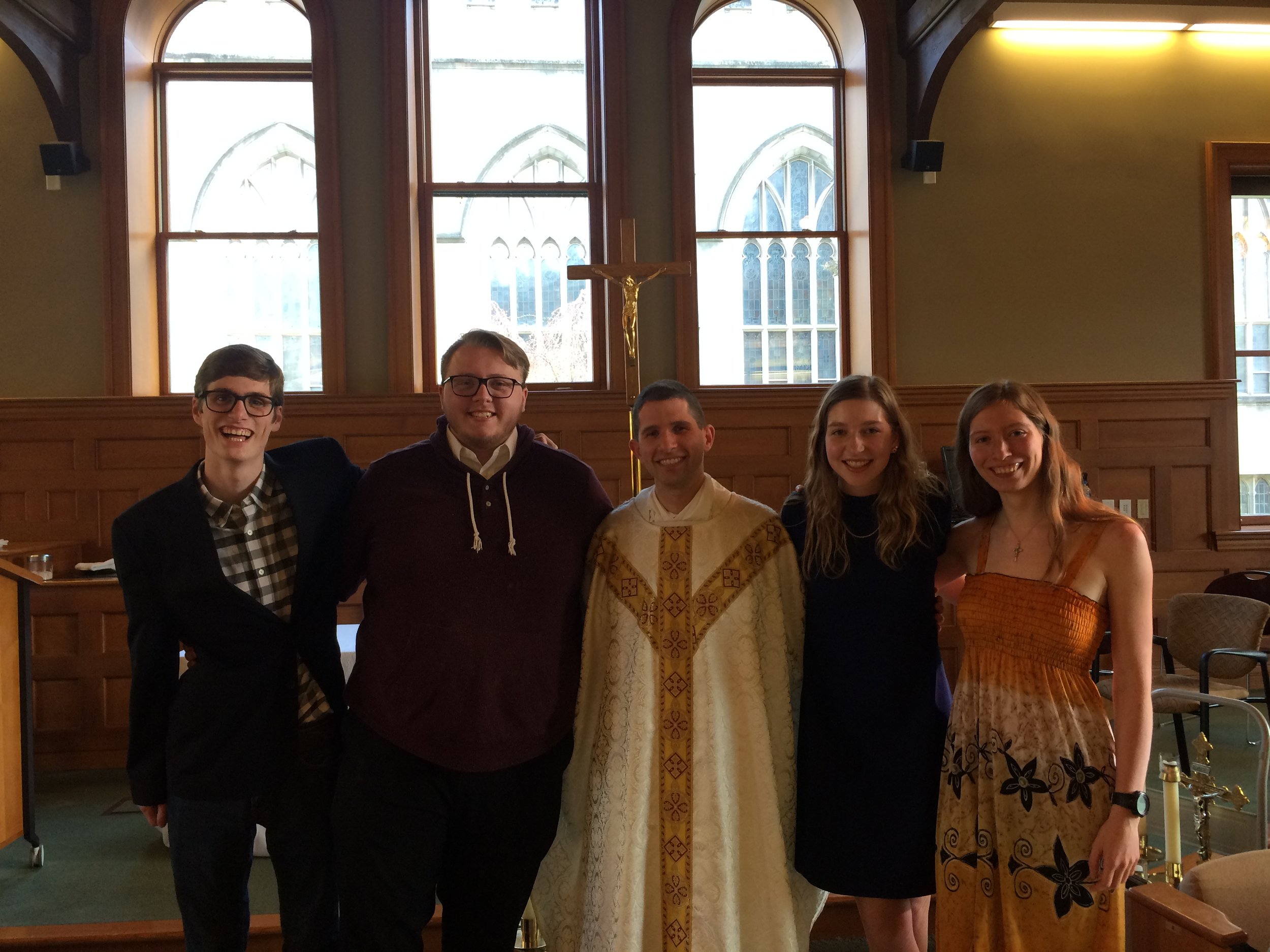
Pictured: The newly confirmed members with their sponsors.

Wednesday, April 17, 2019
6:00PM
Fried Hemenway Auditorium
Martha Miller Center
The Hope College community is invited to join us on Wednesday, April 17at 6:00PMin Fried Hemenway Auditorium in the Martha Miller Center for a showing of The Passion of the Christ.
The film depicts the final twelve hours in the life of Christ on the day of his crucifixion. This is a wonderful opportunity to enter more deeply into the final days of Lent as we prepare for Good Friday.
The showing is co-sponsored by Hope College Campus Ministries and the Saint Benedict Institute.

March 31 and April 7 (Sundays)
6:00PM - 7:15PM
Graves 119
Current students are invited to join us for a two-week FREE dinner and class on Catholic doctrine and practice. This ain't your grade school CCD! Fr. Nick Monco O.P. will give instruction on Everything You Ever Wanted to Know about Confession.
Registration required. Seating limited.

Thursday, March 7, 2019
7:00PM
Maas Auditorium (264 Columbia Ave, Holland, MI 49423)

On Thursday, March 7, 2019 the Saint Benedict Institute and Hope College Markets and Morality hosted Helen Alvaré. She gave a talk on Work, Family, and the Sexual Revolution: A Christian Feminist Take on Law and Culture Today.
While U.S. family life, sexual mores, and employment patterns have changed considerably over the last half century, law and public policy have not caught up. Furthermore, sometimes lawmakers send muddled, conflicting, or even pernicious messages. Individuals, families, communities, and churches and other private institutions need to take additional responsibility to assist families, especially children who are most hurt by these changes. But law and policy makers also need to step up to their responsibilities.

Helen Alvaré is a Professor of Law at Antonin Scalia Law School, George Mason University, where she teaches Family Law, Law and Religion, and Property Law. Her most recent book is Putting Children's Interests First in US Family Law and Policy: With Power Comes Responsibility (Cambridge University Press, 2017).
This event is co-sponsored by the Departments of Religion and Political Science, the student group G.R.A.C.E.S. and the Hope College Cultural Affairs Committee.

Friday, February 15
5:00PM - 7:00PM
DeWitt Herrick Room
The men of Hope College are invited to join us for Love, Sex, and Theology of the Body: A Saint Benedict Seminar for Men with Fr. Thomas Petri, O.P. Students only.
Pizza and drinks will be provided

Fr. Petri was born in Detroit, Michigan, and grew up in Madisonville, Kentucky. He initially studied to be a priest for the Diocese of Owensboro and entered Saint Meinrad College Seminary in 1996 before moving to the Pontifical College Josephinum in 1997 where he earned a Bachelor of Arts degree in philosophy. He then received a Baccalaureate of Sacred Theology from the University of St. Mary of the Lake/Mundelein Seminary in Chicago in 2002. Entering the Order of Preachers in 2004, Fr. Petri was ordained a priest in 2009. He has a Licentiate in Sacred Theology from the Pontifical Faculty of the Immaculate Conception and a Doctorate in Sacred Theology from The Catholic University of America. Prior to his appointment as Vice President and Academic Dean of the Pontifical Faculty of the Immaculate Conception in 2013, Fr. Petri was an Assistant Professor of Theology at Providence College in Rhode Island. He is a member of the Society of Christian Ethics and is the secretary/treasurer of the Academy of Catholic Theology. He has published articles in Nova et Vetera and in The National Catholic Bioethics Quaraterly. He is also a contributor to Catholic News Agency and The National Catholic Register. His book, Aquinas and the Theology of the Body: The Thomistic Foundations of John Paul II’s Anthropology, was published by CUA Press in 2016.
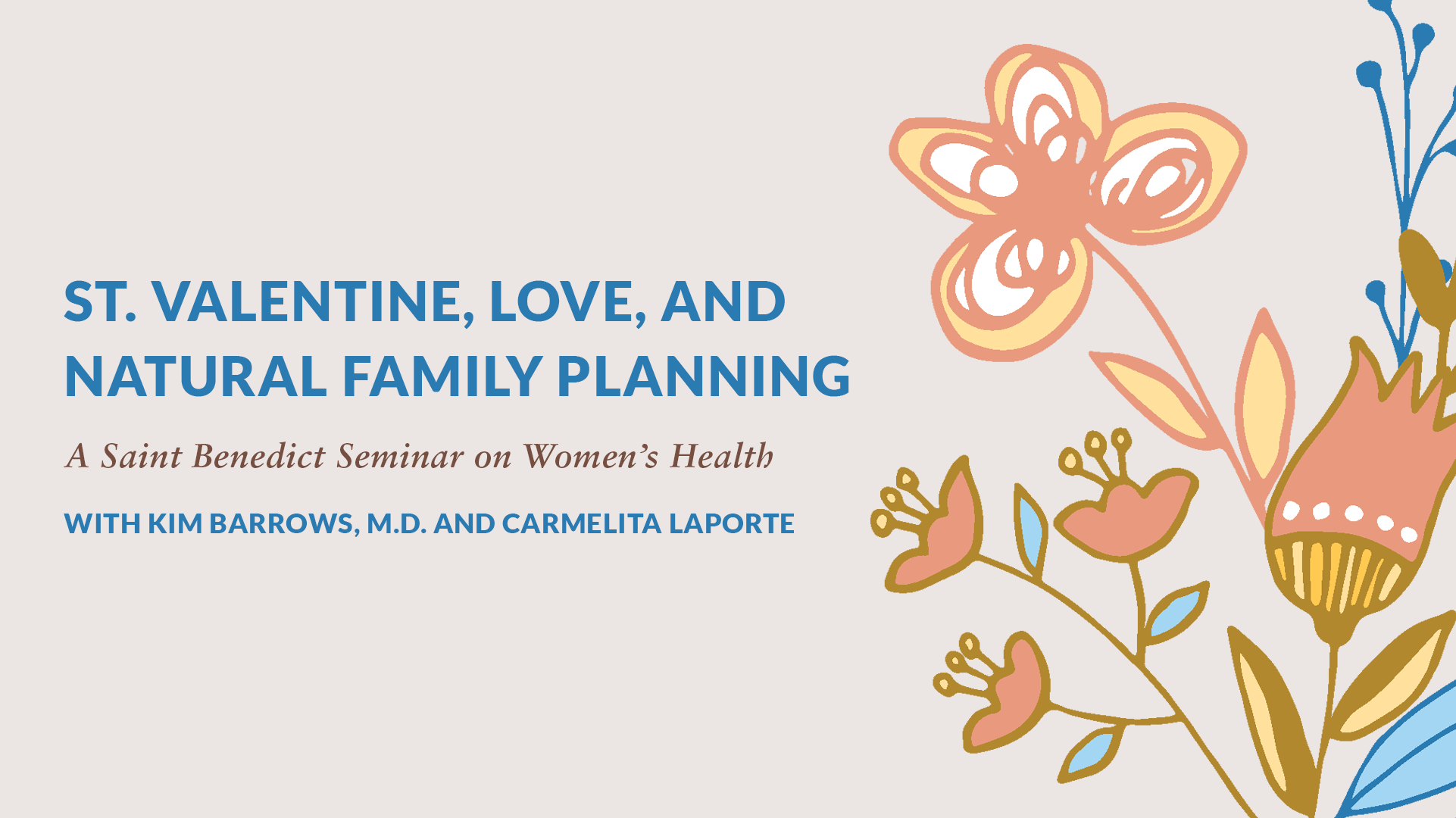
Kim Barrows on February 15 and 22; Carmelita LaPorte on March 1 (Fridays)
Cook Lounge
5:00PM - 7:00PM
The women of Hope College are invited to join us for a three-week seminar on Women’s Health: St. Valentine, Love, and Natural Family Planning. Students only.
Pizza and drinks will be provided!

Dr. Kim Barrows has worked as a family medicine physician for over a decade, most recently in Omaha, NE. It was there at the Pope Paul VI Institute at Creighton University that she acquired specialty training in NaPro Technology, a women’s health science that networks family planning with reproductive and gynecological health monitoring and maintenance.
According to Dr. Barrows, the benefits of NaPro Technology span a variety of women’s health issues beyond the natural management of fertility: infertility, miscarriage, premature birth, post-partum depression, endometriosis, premenstrual syndrome, recurrent ovarian cysts, and more. Dr. Barrows is the mother of five children, a classical singer and enjoys waterskiing, and teaching children’s choirs and dance teams.

Carmelita LaPorte is an active volunteer in the Holland/Zeeland area. She and her husband Joe have seven children. They both help to facilitate the marriage preparation program at St. Francis de Sales Catholic Church. She puts her education degree to good use by volunteering at Corpus Christi Catholic School. In the community, she is also a volunteer for the Ottawa County Police Department. Carmelita is passionate about guiding and accompanying people, particularly women, in authentically living out their vocations. She enjoys reading, coffee dates, real conversations, and meeting new friends.

February 15, 2019 - May 25, 2019
The Exodus 90 program is built on the pillars of fellowship, prayer, and sacrifice. It is for those who are looking to seriously live their faith, to encounter Christ in a new way, and to overcome sinful habits. The program is demanding and that is point. To make room for Christ in our hearts requires clearing other things out. If you register for this program please know that it is a serious commitment to a weekly group meeting, to daily accountability, at least 20 minutes of daily prayer and a serious regimen of ascetic practices. If you are not interested then please do not sign up. If you do then give it your all, knowing that Jesus will not be outdone in generosity. Anyone is welcome to participate.
The process to join has five steps:
Step 1: Read the this sheet on the structure and commitments involved in Exodus 90. This is a rigorous program - please do not skip over this step and prayerful consider whether God is calling you to this at this time in your life.
Step 2: Complete this online registration form (5 minutes or less).
Step 3: Sign up for a particular group using one of the four links below. Pay attention to when and where you group is meeting if the time is specified. If the meeting time is not specified then a doodle poll will be used to find a time.
Step 4: Download the GroupMe app for your iPhone or Android
Step 5: Attend out kick-off event on Thursday, February 14th in Dimnent Chapel at 11am.

On Saturday, February 2, 2019 from 9:00AM - 4:00PM, the Saint Benedict Institute hosted a Day of Study on the theme Disability and Human Nature.
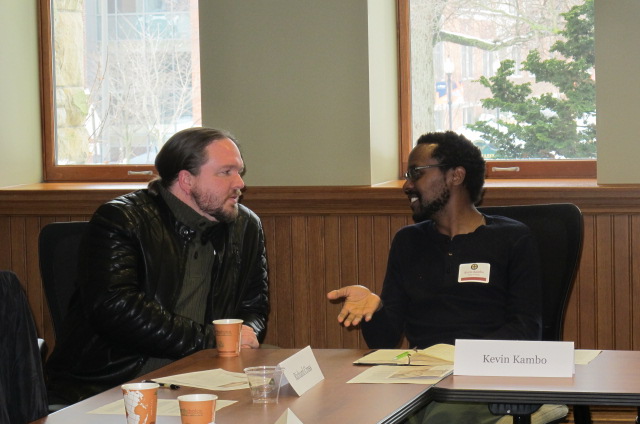
The rise of disability studies has given fresh urgency to the question of what it means to be human and many of those engaged in this study seem to be operating from very different principles. On the one hand, there are those who would deny that the disabled, especially the intellectually disabled, have lives worth living and, indeed, would even argue that some among them are not persons. On the other hand, there are defenders of the disabled who challenge the idea of ‘normal’ and who often explicitly or tacitly argue that traditional notions of human nature are wrong or, at least, need to be rethought. This Day of Study is meant to explore, in the light of faith, some of the questions raised by the current state of disability studies. What does it mean to be human? Is there a different meaning for disabled humans? Is there such a thing as ‘normal’ for human beings? What are the characteristics, if any, of our common human nature? Are disabilities part of creation or the Fall? Does the Christian tradition have resources for addressing the questions raised by disability studies or does the tradition need a radical re-thinking?
The day of study consisted of several papers presented by Michael Waddell, Sarah Barton, Benjamin Connor, and Jared Ortiz. Each paper was by a conversation with twenty invited "thoughtful interlocutors" from the region.
Michael Waddell is the McMahon Aquinas Chair in Philosophy at St. Mary's College and Director of the Master of Autism Studies. He is currently working on a book, Autism and the Catholic Tradition.
Sarah Barton is a Nouwen Fellow at Western Theological Seminary. She is finishing her dissertation on "Becoming the Baptized Body: Disability, Baptism, and the Practice of Christian Community" at Duke Divinity School.
Benjamin Conner is a Professor of Practical Theology and Director of the Graduate Certificate in Disability and Ministry at Western Theological Seminary. His most recent book is Disabling Mission, Enabling Witness: Exploring Missiology Through the Lens of Disability Studies (InterVarsity Press, 2018).
Jared Ortiz is a professor of Religion at Hope College and the Executive Director of the Saint Benedict Institute. His most recent book is Deification in the Latin Patristic Tradition (The Catholic University of America Press, 2019).



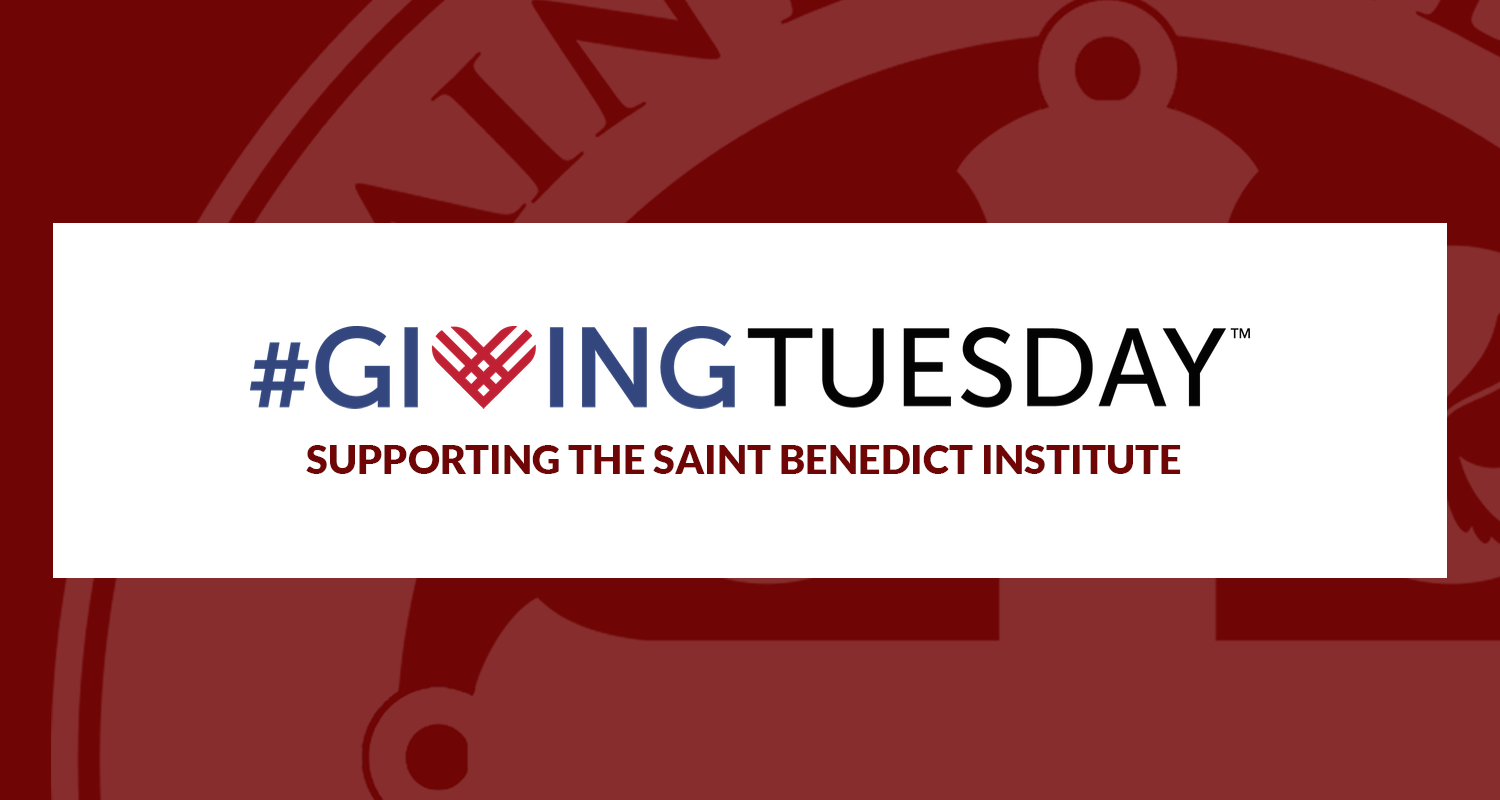
Today is #GivingTuesday! Please consider making a gift to support our ministry at Hope College. Throughout the month of November we have shared several stories from our students. They are beautiful accounts of vocation, conversion, and service. By giving to the Saint Benedict Institute your generosity can help foster many new stories in the lives of students at Hope College in the years to come.
Check out our featured students below!

"Inspired by the Holy Spirit, I had a newfound openness to God’s voice. It was in hearing His voice that I found out that He was leading me to the priesthood."
Read Jacob's story

"I gobbled up all the Catholic media I could find, ravenous to know God in this new way that was true and beautiful, simple yet endlessly mysterious."
Read Jazz's story

"There is no doubt that if I wasn’t altar serving, I could spend more time with friends, run over to the dining hall earlier and then try to finish my school work. Yet, it is when we make ourselves poorer for His sake, the One who sacrificed everything to be with us, that the blessings of God make themselves manifest in our lives."
Read Chase's Story

In March, Fr. Nick and Carly took students on a trip to St. Meinrad's Archabbey over spring break. The students were immersed in the world of monastic religious life, centered around the ideas of prayer and manual labor. They joined the monks five times per day for prayer, worked on an outdoor project on the monastery grounds, heard interesting talks about prayer and monastic life, and also enjoyed some R&R with the monks.


My freshman year at Hope I took a 2-credit introductory religion course with Dr. Ortiz. I found the course very challenging and it totally wrecked what I thought I knew about Jesus and Christianity. Near the end of the course Dr. Ortiz stopped me at the end of the class and said “You should be a religion major.” I spent the next two years after that wrestling with Christianity and seeking a denominational home that seemed theologically and philosophically consistent within and outside itself. I was having a horrible time and regularly interrogated Dr. Ortiz with questions via email which he would always respond to graciously and patiently with more answers than I really wanted or could emotionally bear.
I decided I would leave Hope to gain some perspective. I signed up for a domestic study abroad program where I lived in a cabin on a mountain a long car ride from civilization without my phone or Facebook and many other distractions. I intended to figure out this denominational issue once and for all. The summer before I left I took a church history course with Dr. Ortiz. Although the course was condensed at the time I took it and luckily had my whole semester “abroad” to meditate on it. During this time, I tried every church on the map. Funny enough, the way it worked out, even going to Protestant churches, I don’t think I got to receive communion that entire semester. Driving up the mountain, on the way home from my last church service that semester, which happened to be Mass, I looked out the window at the mountains of the Pacific Northwest. I turned to my professor, also the driver, and said: “Want to know my pet peeve? When churches don’t serve communion every time. In the ancient church, the Eucharist was the whole point of going to church. Everything centered around that. At least for the sake of tradition, we should stay historically consistent.” We stayed silent a moment. I looked back out the window at the sun filtering through trees as we rounded a bend and the scene broke into another bright and beautiful landscape. I got uncomfortable. Finally, I said it out loud: “I have to be Catholic.”
As soon as we got home I emailed Dr. Ortiz and St. Francis de Sales Parish to alert them of the fact that my heart was on fire and this needed to happen as soon as possible. This was too many years in the making. I gobbled up all the Catholic media I could find, ravenous to know God in this new way that was true and beautiful, simple yet endlessly mysterious. When I came back to Hope for the Spring semester, the Saint Benedict Institute had all kinds of groups, activities and events on campus that I could do alongside Catholics in preparation for my baptism and confirmation. I joined the women’s prayer group, an Exodus 90 group, and met with Carly McShane (the campus missionary) and Fr. Nick weekly, and attended a three-week seminar on Heaven, Hell, and Purgatory. By the time the Easter Vigil arrived I was already a changed person. But that night, at my baptism, I became a new person in Christ, and through my confirmation I matured more fully into that person.
I can’t imagine what it would be like to be given my eternal baptismal robes and then return to a campus with minimal Catholic community and then try to maintain my robes as I said I would in my baptismal promises. Without things like daily mass, constant access to the sacrament of reconciliation, such an intense community of Catholic students, and events that the Saint Benedict Institute has, I may have lost sight of my new identity. Besides the gift of a deeper, more fruitful, and eternal relationship with God, the next greatest gift that I received from my conversion almost 9 months ago is the new community of friends and family (including the communion of saints!) that I have found through the Catholic Church and more specifically through the Catholic community at Hope.
Jazz Porter is a senior studying Church History and Theology and Environmental Studies at Hope College. She is a member of the leadership team for the student group Hope Catholics and leads a bible study on campus. Jazz enjoys brewing her own kombucha and playing with her four guinea pigs.

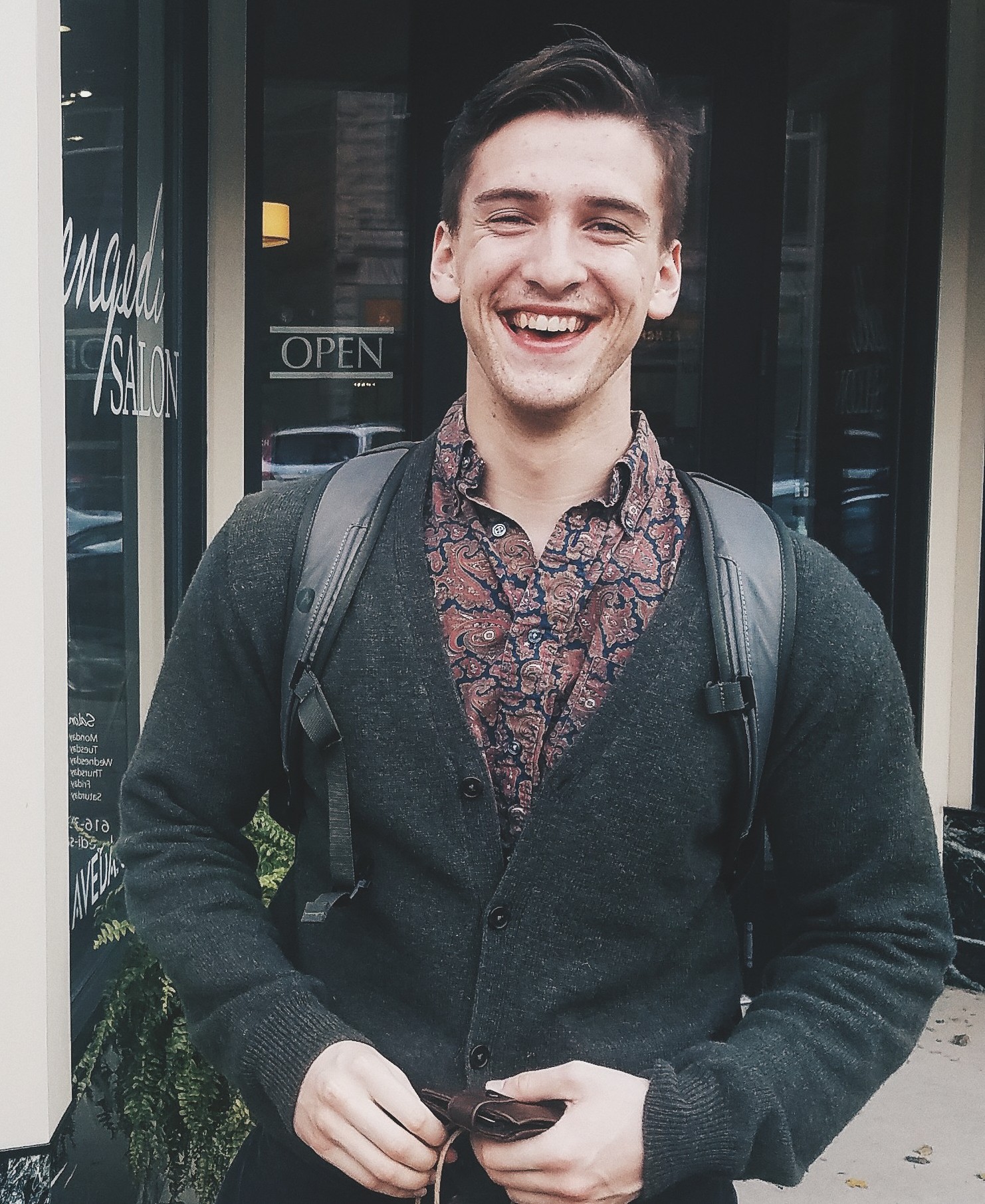
It was over coffee during the first semester of my sophomore year of college that I heard these words, “Do you want to know the best way to do what you want to do? The priesthood.” I looked Fr. Nick in the eyes and adamantly shut down the idea. Fast forward to the next semester: I was sheepishly telling Father, “I think I am being called to the priesthood,” to which he simply raised his eyebrows as if to say, ‘I told you so.’ Just before the semester started I attended a conference and had a deep conversion. Inspired by the Holy Spirit, I had a newfound openness to God’s voice. It was in hearing His voice that I found out that he was leading me to the priesthood.
After I informed Fr. Nick of my new direction I began the discernment process, allowing him to help me follow the Lord faithfully. We began meeting every two weeks and shortly after that we started the Exodus 90 program. In this time of prayer and fasting, I grew deep in my faith and learned about myself and God. I did not feel a pull in one direction or another, but I had a great deal of peace despite the lack of direction.
My discernment process picked up when Fr. Nick suggested that I go to a “Come and See” weekend with the Dominicans in St. Louis. During this visit I experienced the brother’s communal way of life. All the visitors joined the brothers in Morning Prayer (Lauds), Evening Prayer (Vespers), and Night Prayer (Compline). This was an incredible experience that revealed a longing for a life built around prayer. The brothers were friendly, joyful, and had a great sense of humor. The mission of the Dominicans, to preach the gospel and convert souls, deeply resonated with me. I feel myself drawn to the spiritual works of mercy, which is at the core of this mission.
Although there are many years of discernment ahead of me, the Dominicans are currently the front runners. I am thankful that guidance will be readily available due to Fr. Nick’s presence at Hope. Regardless of where I end up, this season has been a great blessing for me and I will be closer to Christ because of it.
Jacob Mazur-Batistoni, formerly ‘Jacob with the long hair,’ is a junior studying Church History and Theology at Hope College. Jacob serves as a leader for the student group Hope Catholics and works with the high schoolers in the ALPHA program at St. Francis de Sales Parish.